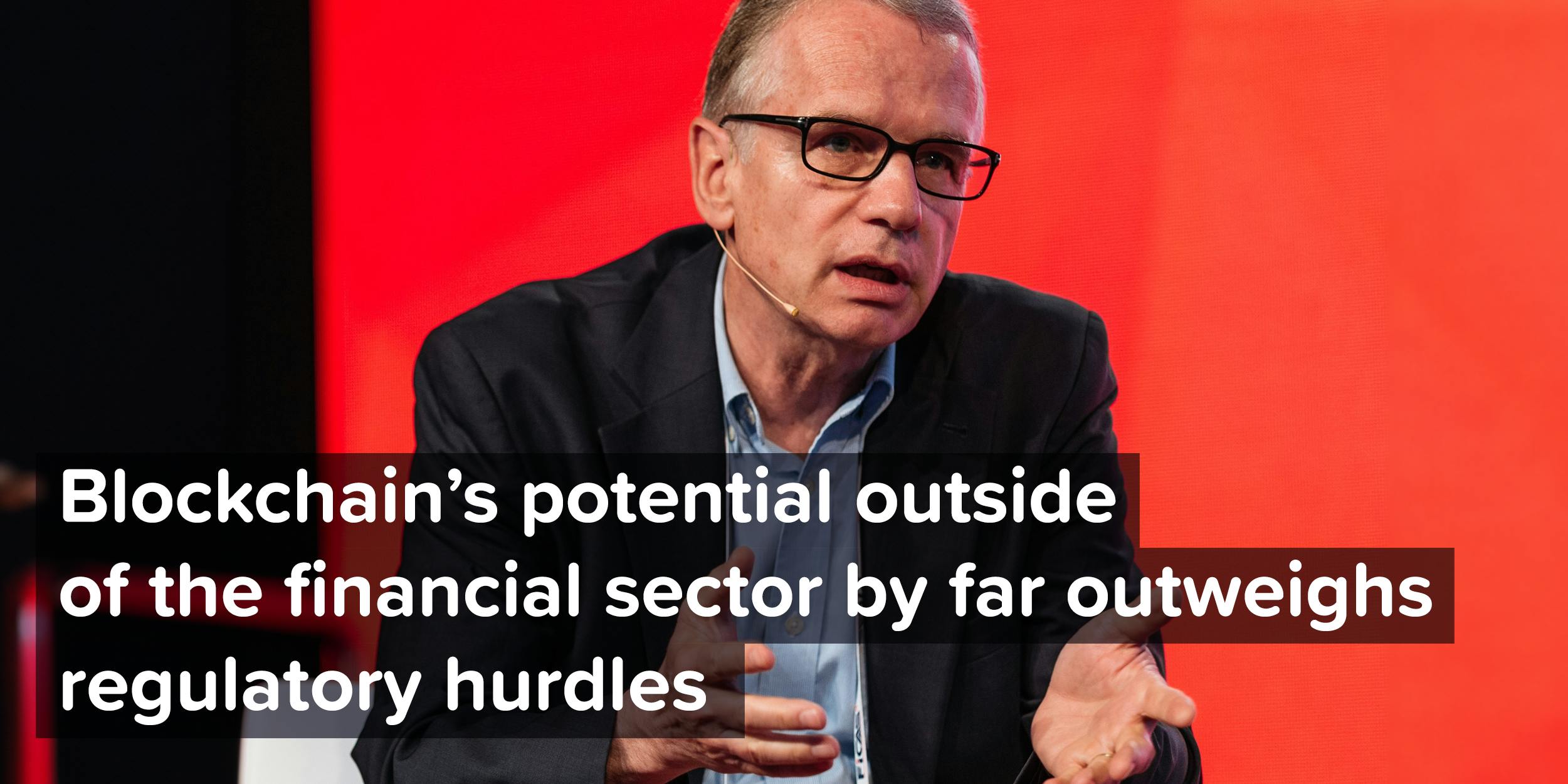Blockchain’s potential outside of the financial sector by far outweighs regulatory hurdles

- Date
- 16/09/2023
- Written by
- Lykke
- Share
- Leave your opinion (1 reviews)
“Blockchain technology currently faces an uphill fight, but it will not end in a disaster like the dotcom crash twenty years ago,” says Dr. Martin Hess, a partner at Künzi Hess MacNab attorneys-at-law in Zurich, who based on his experience with traditional financial market infrastructures such as payment systems and central counterparties specializes in advice to fintechs and decentralized finance (DeFi) players such as crypto exchanges. “Blockchain is increasingly being adopted outside of the financial sector.”
Estonia is at the forefront of blockchain adoption. “It mutated electronically following its independence from the Soviet Union in 1990 and was very successful,” Hess says. The Baltic state has for instance been issuing a digital national ID card on a blockchain since 2012. It protects national data, e-services and smart devices both in the public and private sector, the Estonian government writes on its website.
Blockchain technology won’t go away, according to Hess, as consumers want it to be easily accessible. “The only way to see your bank account’s balance right now is through a financial intermediary. But with blockchain, this step could be skipped if the users are technically skilled. If not, the technology provider must also install centralized features for custody as well as access to such custody. While there is no longer a need for intermediaries, the feasibility requires a managed handling of the new technology, which leads back to centralization...”
Blockchain technology, currently mainly used for crypto assets, has great potential in areas where sensitive personal data is stored such as the medical and educational sector. “It’s a very delicate issue [to handle personal data] when it is registered manually. It’s prone to mistakes,” Hess says. The technology could also be used to make supply chain controls transparent, and by banks for their payment settlements and international transfers. “There is a need to invest in blockchain, but right now all the money is flowing into AI-related projects,” he notes.
Lack of clear regulations, a brake for the entire crypto universe
The crypto markets are still quite unregulated compared to traditional financial markets, making them far riskier and subject to fraud and other scandals. “Their reputation is bad because they have been used for shadow banking, money laundering and for fraud,” Hess notes. The question now is “how the regulators will react: ban, separate or regulate? I favor the last option. Regulation is the way forward.”
But he sees a danger in that the Bank for International Settlements (BIS), for example, simply want to apply existing securities regulations to crypto assets. “These tokens are multi-use. Their classification should depend on their function, on a case-by-case basis. It's nonsense to stick to rigid classifications as either commodities or securities,” Hess argues.
He considers Switzerland ought to go a step further and copy the EU’s Market in Crypto Assets regulation (MiCA). “I like MiCA and the level of detail that it contains. The regulation provides certainty about a good part of cryptocurrencies, e-money or stablecoins, which you might like or not like, but you at least know what it is. Switzerland will lose business if it doesn’t regulate, as crypto clients will turn to jurisdictions where you have transparency and legal certainty.”
The US, the perfect example of legal uncertainty in the crypto universe, is paralyzed “by its overly complex regulatory structure. This in turn results in many [crypto] projects excluding the US,” Hess underlines. Coinbase, the largest crypto exchange operating in the US, earlier this month rang the alarm bell: “The US’ share of global web3 development has already dropped from 40% to 2 % in the last 5 years fueled by uncertainty and a regulation-by-enforcement approach in the US.”
Asia and the EU are the main beneficiaries of the regulatory uncertainties in the US. “The EU, because of MiCA. Berlin has turned into an amazing crypto hub with brilliant people, just as northern Italy. MiCA creates a big market, and the big markets will win,” Hess concludes.
Dr. Hess holds both Cardano and Ether in his investment portfolio, where they represent a modest component.